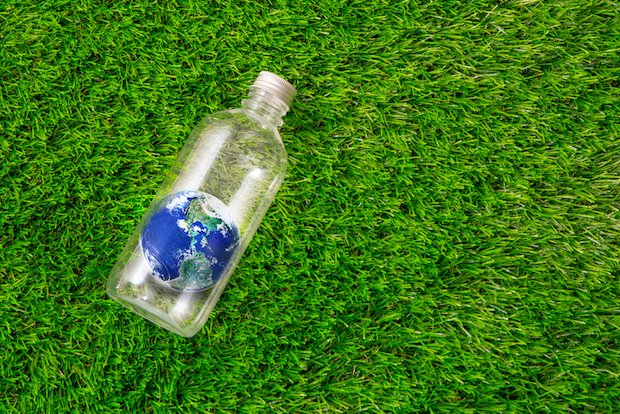Nestlé and Danone have put rivalries aside to join forces to develop a greener plastic bottle.

The Financial Times reported this week that the Swiss foodstuffs brand owner and its French competitor have pooled their investment to boost research and development into plastics derived from waste cardboard and sawdust materials as opposed to petroleum feedstocks. They are lending their financial backing to Californian biotech company Origin Materials together because they want to speed up these potential new plastics on their journey to market.
By investing in this new plastics technology together, both companies hope to produce bottles made entirely by the new plastic in commercial quantities by 2020.
The FT reported that Head of Research and Development at Nestlé Waters Klaus Hartwing said developing plastics from renewable raw materials is better than “changing the chemistry of your material and hoping it disappears afterwards” by making a biodegradable plastic.
“The goal that we have is a lighter environmental footprint,” he was quoted as saying.
Head of Research and Development for Plastic Materials at Danone Frederic Jouin told the FT that 100 per cent of Danone‘s bottles in the long term will be made “without a drop of oil“, while this new bioplastics technology will be made available to the entire beverage industry.
At the Petcore Europe Conference in Brussels on February 1st 2017, Head of the Sustainable Materials Team at the Danone Research Plastic Material Techno Centre Françoise Poulat shared that the company’s plastic feedstock shares are at present two-thirds oil-based, 27 per cent recycled materials and just seven per cent bio-based and that Danone is looking to use more sustainable resources and adopt more lightweight design in a bid to cut industrial plastic waste going to landfill.
Source: Europe’s Plastic Processors Magazine













